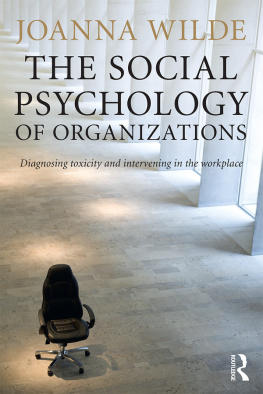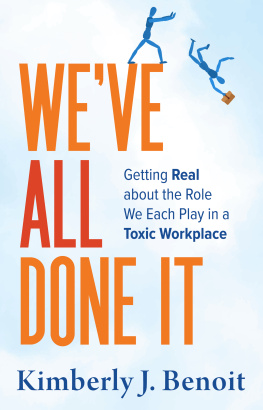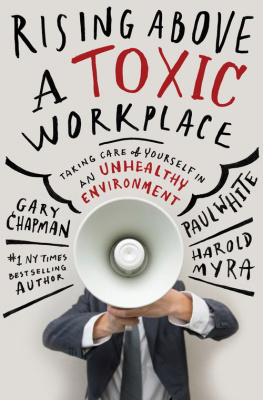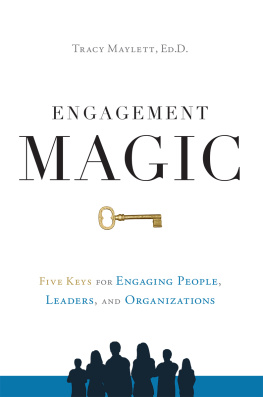
THE SOCIAL PSYCHOLOGY
OF ORGANIZATIONS
Healthy and successful organizations require the people who work within them to be happy, healthy and creative. Just as a human body is undermined if it suffers from sickness, so an organization can only function fully if its working relationships bring engagement and well-being, and any toxic influences which shape or burden their working lives are resolved.
This important new title provides a much-needed overview not only of what it means for an organization to be weakened by pervasive psychosocial influences within the working environment, but also how this dysfunction can be addressed through psychological interventions. The book is split into three core sections:
Toxicity and dysfunction in the workplace, outlining structural, behavioural, emotional and cognitive sources of toxicity that undermine organizations.
Diagnosis and intervention in the workplace, outlining core concepts of belonging, contribution and meaning.
Creating the healthy workplace, outlining a range of approaches to address organizational toxicity, including design thinking, positive psychology, and evidence-based approaches.
Written by a practising organizational psychologist, and including case studies to illustrate how toxicity at the micro level can impact upon wider organizational goals, the book draws on a wide range of literature to provide an accessible, focused understanding of how the psychosocial experiences of working people can have wider consequences for an organizations prosperity, and how interventions within that process can address these issues. It is ideal reading for students and researchers of occupational or organizational psychology, organizational behaviour, business and management and HRM.
Dr Joanna Wilde has over 25 years evidence-based professional practice in Organization Development and Change at senior levels in FTSE 100 and Fortune 100 companies and is an industrial fellow at Aston Business School, UK. She is on the board of directors for the UK Council for Work and Health and set up the Work and Health Policy Group for the British Psychology Society. She is also the Director of a small organizational psychology practice.
THE SOCIAL
PSYCHOLOGY OF
ORGANIZATIONS
Diagnosing toxicity and
intervening in the workplace
Joanna Wilde

First published 2016
by Routledge
2 Park Square, Milton Park, Abingdon, Oxon OX14 4RN
and by Routledge
711 Third Avenue, New York, NY 10017
Routledge is an imprint of the Taylor & Francis Group, an informa business
2016 Joanna Wilde
The right of Joanna Wilde to be identified as author of this work has been asserted by her in accordance with sections 77 and 78 of the Copyright, Designs and Patents Act 1988.
All rights reserved. No part of this book may be reprinted or reproduced or utilized in any form or by any electronic, mechanical, or other means, now known or hereafter invented, including photocopying and recording, or in any information storage or retrieval system, without permission in writing from the publishers.
Trademark notice: Product or corporate names may be trademarks or registered trademarks, and are used only for identification and explanation without intent to infringe.
British Library Cataloguing in Publication Data
A catalogue record for this book is available from the British Library
Library of Congress Cataloging in Publication Data
Names: Wilde, Joanna, author.
Title: The social psychology of organizations : diagnosing toxicity and intervening in the workplace / Joanna Wilde.
Description: Abingdon, Oxon ; New York, NY : Routledge, 2016.
Identifiers: LCCN 2015039753| ISBN 9781138823211 (hardback : alk. paper) | ISBN 9781138823235 (pbk. : alk. paper) | ISBN 9781315742182 (e-book)
Subjects: LCSH: Organizational behavior. | Organizational change. | Organizational effectiveness. | Organizational sociology. | Industrial relations.
Classification: LCC HD58.7 .W529 2016 | DDC 658.4/053dc23
LC record available at http://lccn.loc.gov/2015039753
ISBN: 978-1-138-82321-1 (hbk)
ISBN: 978-1-138-82323-5 (pbk)
ISBN: 978-1-315-74218-2 (ebk)
Typeset in Bembo Std
by Swales & Willis Ltd, Exeter, Devon, UK
Rachel and Sophy, because we are three sisters together and nothing is possible without this (and the razor sharp editing pencil that Rachel wields).
Ray and Meri whose practical wisdom and warm support enabled me to get writing and find the right publisher and Russell for being that right publisher who gently and supportively helped me find my voice and unlearn some nasty PhD writing habits.
My friends and close colleagues who have fed this process with thoughts, space and contribution: Fran Laneyrie, Sarah Owusu, Judith Okonkwo, Moira Nangle and Derek Tuitt. Dr Sam Collins and the Aspire women you know who you are that inspired me to accept that writing this wasnt something that should be done by some random other, but that must be written by me.
Steve Woolgar and Steve Linstead for being my two intellectual guides when I needed it thank you.
Paul Tolchinsky, Nick Richmond and the crew at European Organizational Design Forum (EODF). I got to trial my first ideas out in Vienna, at one of the wonderfully safe yet challenging environments this community of practice creates you know who you are thank you all.
And all the clients, too numerous to mention, who I have worked with, prototyped with and always learned from.
Intelligent activism and the social psychology of organizations
Our workplaces have lost their humanity. We need to address how we engage with complex organizations to repair this. Underpinning how is the need to engage with what we know about the sources of this workplace toxicity. We also need to find the place for knowledge through practice; the grounded understanding of emergence in complex organizations. We do know better, and it is now time to put what we know into practice.
This book is about psychosocial practice in the workplace, or as I prefer to describe it intelligent activism. Intelligent activism has two parts: first, intelligent refers to the work required in translating complex knowledge (for what is now described as impact), and the breadth of knowledge, discipline and insight that can help us do this. Second, activism refers to doing, to know-how, to working with uncertainty coupled with a consideration of ethics as the loadstone.
To ground intelligent activism it is important to acknowledge the established place that pragmatism had in early psychology, articulated in the work of pragmatists such as Dewey (18591952) (Tiles 1988) and Mead (18631931) (Joas 1985) who were both leaders in the American Psychological Association (APA) over a century ago. They articulated that any scientific fact will change with time and that the social was critical to what was taken as fact. In contrast with the dominance of the emerging pure science agenda in other branches of psychology, they suggested that the only sustainable purpose for investment in knowledge development had to be an ethical one: to help shape relationships and communities for the better.
Dewey was particularly focused on using the emerging scientific principles to enable improvement in education and called for a theory of action as the cornerstone of all ethics. Mead, recognized as the founder of social psychology, wrote of the imperfections of objectivity and identified that all perceptions are culturally constituted. This recognition underpinned his ideas of symbolic interactionism, which is considered the launch point for a social psychology, the domain within which this book sits. Mead also indicated that as scientific method developed and became increasingly valued, it was troubling that the increasing rationality of means was not being matched with an equivalent increasing rationality of the social setting of ends. He was advocating, over a century ago, that ethical examination of the ends themselves (i.e. what we are creating) was critical.
Next page











